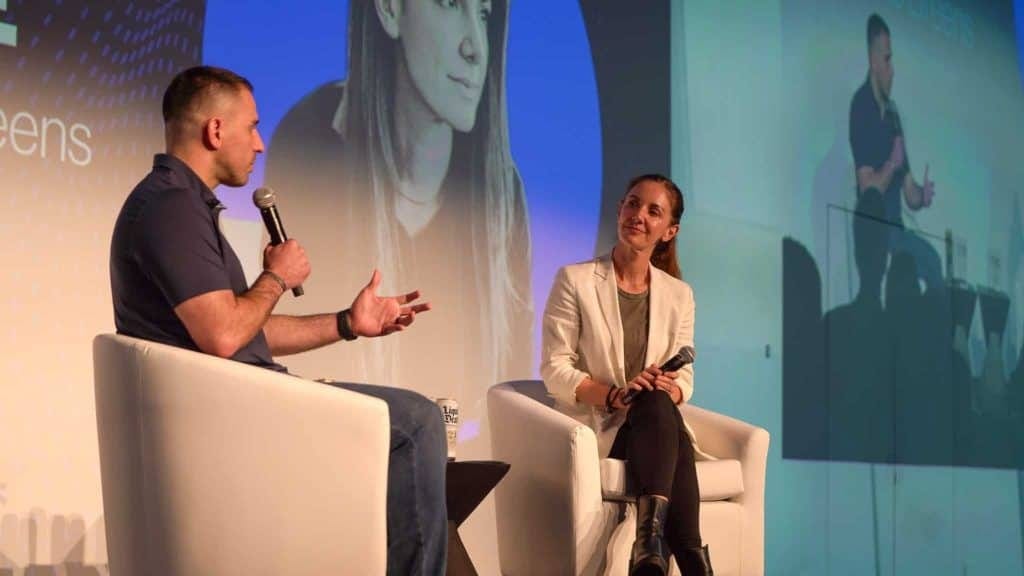Extraordinary people chase outlier ideas (how to leverage curiosity)
What I learned spending a weekend with 700 CEOs at the BUILD Summit in New York City.
When you put 700 founders in a room, the most common question you hear is not “what do you do?”
It’s “what problem are you trying to solve?”
I spent the weekend at BUILD Summit in New York City, hosted by Andrew Yeung, Anthony and Polina Pompliano, meeting hundreds of first-time CEOs, serial entrepreneurs, and executives running billion-dollar companies.
After more than 20 hours of conversation packed into two days, one assumption I’m comfortable making is that no one who runs a company is “normal.”
Athletic Greens President Kat Cole, for one, said her company is “freakishly obsessed” with quality, while Nikita Bier, the founder of the viral app, Gas, said you have to be “a little crazy” just to take a swing at building something.
Everyone I met at BUILD was an outlier, regardless of their level of success. Most people I spoke to admitted to more false starts than moonshots, and many acknowledged that their company was years away from being profitable.
The unifying characteristic among founders seems to be an enthusiasm for pursuing unusual, unconventional ideas that do not have guaranteed outcomes.
Outlier individuals are those who chase outlier ideas.
The urge to solve problems
No one at the conference parroted platitudes of escaping the 9-to-5, gaining financial freedom, or the need to “stop working for the man.” These are side effects of a deeper motivation.
Attendees largely pointed to two drivers behind why they launched a company:
No one else could solve the problem they wanted to solve
Specific curiosity and broad ambition
Usually, it’s not that someone has an arbitrary urge to leave a job or make more money. It’s that not starting a company is no longer an option.
Leveraging curiosity
Among those who have grown startups into money-printing machines, it’s true that most are very smart. But we can learn more by examining what direction they point that brain power in, rather than merely chalking up success to intelligence.
Let’s return to our above definition: Outlier individuals chase outlier ideas.
These ideas unfold organically. If you want an example, a good test is to ask yourself what you would do for free — that’s the origin story for a lot of startups.

Entrepreneurs have a habit of working on their own projects, and the proclivity exists well before founding a company. Those projects are born from curiosity.
An excessive interest pointed in a specific direction is plenty energizing to get something off the ground. It’s even better if that curiosity brings you to a niche that would bore most people.
The more excited you get about some outlier idea, the higher the odds no one else is paying attention. This is a good thing — curiosity allows someone to learn what everyone else overlooks. Great work, founders tell me, happens when someone spends what others would consider too much time on one thing.
Think of the physics student who loves physics, and the physics student who’s only there to get a high-paying job. Who has the higher ceiling?
With enough curiosity, sustaining a project has nothing to do with motivation or financial promise. Most founders see their initial wonder snowball into an ambition they can no longer ignore, which ultimately makes entrepreneurship inevitable.
Work that doesn’t feel like work
On Saturday, Howard Lerman, the founder of multiple companies including Yext, which at one point was worth $2 billion, remarked that a 70-hour work week was typical. The crowd nodded in agreement.
He then asked the BUILD audience how many people work Sunday nights, and everyone’s hands, including mine, shot up.
These founders didn’t raise their hand out of some marriage to diligence, but an obsession with the problem at hand. Being deeply interested means work doesn’t feel like work. Something, rather than nothing, is always getting done, and those efforts compound over time. That’s what leads to outsized success.
BUILD showed me just how malleable the world can be for enterprising individuals who choose to go all in on their own curiosity. I find spending time with founders so energizing because it reminds me not just of what’s possible, but what is likely.
Success isn’t some black box. Making a dent in the universe happens when someone goes out of their way to chase an outlier idea. It’s about figuring out what doesn’t feel like work — then mustering the courage to pursue it.
Thank you to Andrew Yeung for reading a draft of this post.


